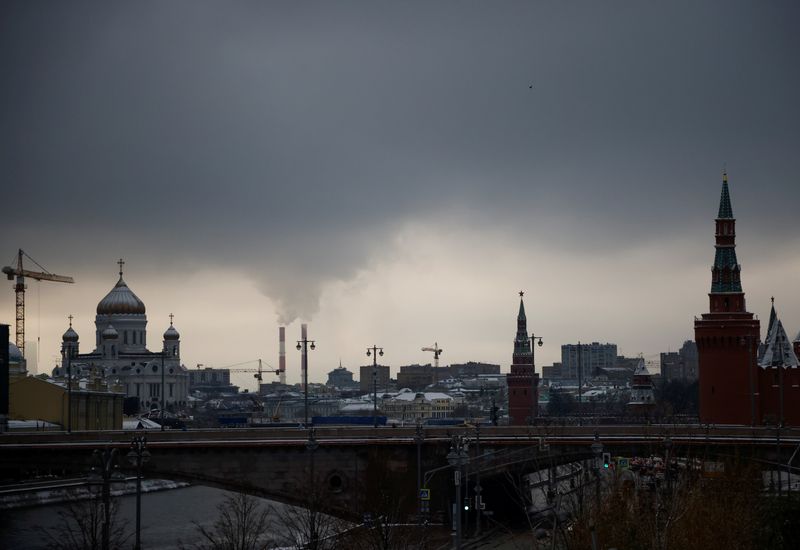(Fixes typographical error in headline to make it "raise" instead of "raises")
By Sinead Cruise and Matt Scuffham
LONDON/NEW YORK (Reuters) - Russia laid down strict new rules for foreigners seeking permits to buy and sell Russian assets ranging from securities to real estate, a client memo by Citigroup (NYSE:C) showed, raising fresh concerns Western investors could face large write-downs.
Russia temporarily stopped foreigners trading Russian assets this month, saying it wanted to ensure decisions to exit were considered and not driven by political pressure, following Moscow's invasion of Ukraine.
It has now revealed the details of an application process that must be followed before the Finance Ministry will decide if assets can be traded, including disclosure of any beneficiaries and strategic investments such as defence.
"Western investors are going to be highly agitated and deeply concerned," said Eric Schiffer, chief executive at California-based private equity firm Patriarch Organization and a specialist in risk management. "This is likely one step of many future steps until Russia has clarity on its own financial security."
Funds with tens of billions of dollars in exposure to Russia have been awaiting details on the restrictions they will face as they seek to offload assets, against a backdrop of increasing economic isolation for President Vladimir Putin.
"I don't think anyone in Russia dares tell Putin the financial problems that lie ahead," said Alastair Winter, a global investment strategist at Argyll Europe, predicting "mass write-offs" for many foreigners exposed to the country.
The invasion, which Moscow calls a "special military operation" to demilitarise Ukraine, has triggered an exodus of international firms and has largely cut off Russia's economy from the rest of the world.
The Russian authorities published Decree 81 this month that stipulates that any transaction between Russians and foreign counterparties requires permission from Russia's Government Commission for Control of Foreign Investment.
Effectively this means foreign investors, who had acquired Russian stocks and bonds without restrictions, were left stuck with those holdings while the economy lurches from an enticing oil-rich investment destination to a financial pariah.
"Russian authorities have announced the order for obtaining permits to carry out operations determined by Decree 81. An authorised body empowered to take decisions on the issuance of permits has been established," the Citigroup memo says.
The process involves an application and related documents to be submitted to the Russian finance ministry, in the Russian language, containing "information on the purpose, subject, content and essential conditions of the transaction."
Applicants must also disclose full information on beneficiaries and beneficial owners, the memo says, as well as details on any investments in companies in a "strategic sector" such as aviation, space, production of natural resources or work with weapons or military equipment.
"This is just a mechanism to control which entities can transact foreign currencies and it won't be companies from hostile countries that are exiting the country," said one banking source about the rules.
Citigroup declined to comment beyond confirming the authenticity of the memo.

A second bank source said they had advised clients against trading under such terms, flagging fears about the sharing of sensitive data and the lack of transparency on application approvals or rejections. However, some investors will likely comply in the hope of avoiding losses, experts say.
"If you have the potential of losing all your assets versus sharing data, I think you'll have some that will want to consider it," said Patriarch's Schiffer.